

Ever heard of adaptogenic herbs? Picture them as nature's stress-busters, quietly weaving their magic in your body, like a conductor guiding an orchestra to create beautiful harmony from chaos.
I first stumbled upon these powerful plant substances during a stressful period. Their promise? To help our bodies adapt better to stress, restoring balance and tranquility like a serene lake on a still morning.
We're about to dive into the world of adaptogens - think Ashwagandha, Asian Ginseng, and Holy Basil - but can they really provide relief when life turns up the heat?
Intrigued yet? Let's discover how these herbs work with our body's stress response system and learn if adding them to your wellness routine could be the key you've been searching for.
Understanding Adaptogenic Herbs
If you've been seeking ways to manage stress, you might have stumbled upon the term "adaptogens." But what are adaptogenic herbs? In essence, these plant substances work like a thermostat. They sense when your body's stress response is too high or too low and help adjust it back to normal.
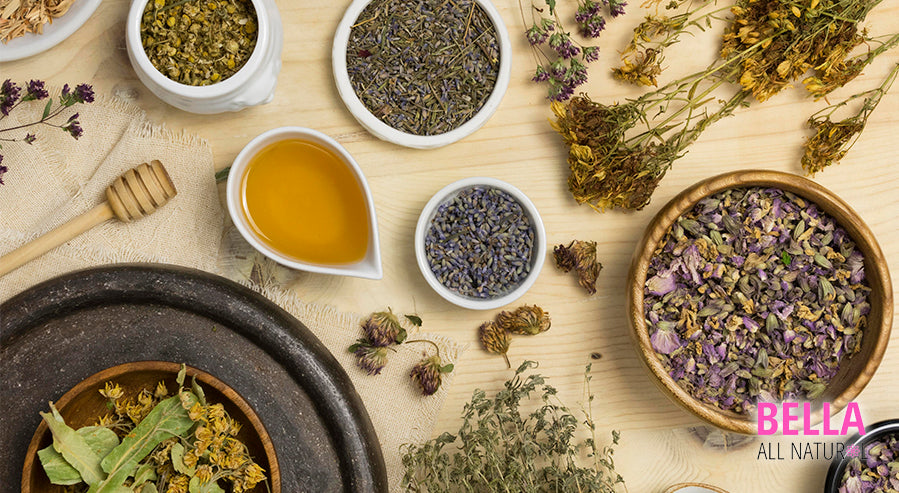
Adaptogens include a variety of herbs such as Withania somnifera (Ashwagandha), Asian Ginseng, holy basil (Tulsi), and more. Each plays its own role in aiding our bodies' reaction to stressful situations.
Exploring the Science Behind Adaptogens
The science behind how adaptogenic herbs interact with our bodies can be fascinating. These natural wonders support our wellness routine by assisting in managing not just psychological but also physical stress levels.

A study published by the National Center for Complementary and Integrative Health revealed that 47% of Americans report an increase in their stress levels since the pandemic started. This data underscores why so many people turn towards natural solutions like adaptogens for relief.
The Hypothalamic-Pituitary-Adrenal (HPA) Axis and Adaptogens
The HPA axis, a critical system that regulates digestion, immunity, and mood swings while maintaining balance within us, is the point of intersection between adaptogenic herbs and ourselves. This complex network controls reactions to stress while regulating digestion, immunity, and mood swings - essentially maintaining overall balance within us.

This brings us right to a crossroads where we meet two very powerful friends: Our HPA axis and adaptogens. The HPA axis and adaptogens join forces to effectively manage the body's response to stress. It's like a duo of heroes working tirelessly to ensure you feel your best and excel in all that you do.
So, as we see, adaptogenic herbs play a significant role not just in stress relief but also contribute significantly towards our overall health by interacting with the HPA axis - helping us live healthier, happier lives.
Potential Health Benefits of Common Adaptogenic Herbs
When life gets tough, adaptogenic herbs come to the rescue. These plant substances have been used for centuries in Eastern medicine and are now making a big splash in Western wellness routines, too.

The beauty of common adaptogens like Withania somnifera (Ashwagandha) and Asian Ginseng is their potential to help your body regulate its stress response. By supporting the hypothalamic-pituitary-adrenal (HPA) axis - our body's primary stress control center - these powerful plants thoughtfully guide us toward balance.
Ashwagandha: The Stress-Buster
Fondly known as 'Indian Ginseng,' Ashwagandha plays a significant role in managing our bodies' reactions to stressful times. Studies suggest that this herb helps combat fatigue while providing relief from anxiety and depression.
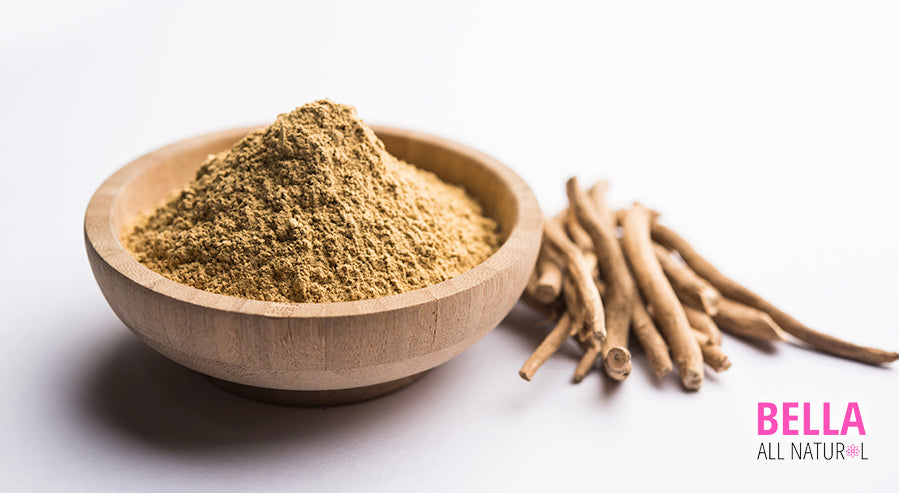
Research shows Ashwagandha also aids post-surgery recovery by reducing inflammation and boosting immunity. No wonder it has become an integral part of many wellness routines.
Ginseng: A Boost for Your Energy Levels
For an energizing boost, turn to Panax ginseng - also known as Asian Ginseng. This adaptogen is well-known for fighting fatigue and enhancing physical performance.

Ginseng refers specifically to Panax ginseng, which senior dietitian Dana Ellis Hunnes at UCLA Health considers beneficial due to its anti-inflammatory and antioxidant properties. These benefits extend to improving mood and mental function, especially under stressful conditions.
Holy Basil: More Than Just a Kitchen Herb
Not only is Holy basil, also known as Tulsi, revered in India for its medicinal value, but it's a key player, too.
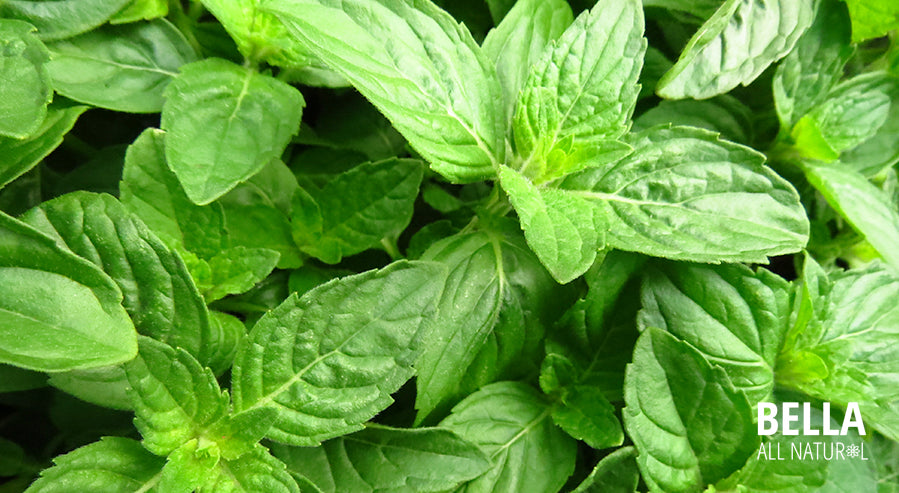
As an adaptogen herb, it significantly helps to lower stress levels.
Safety Considerations for Using Adaptogenic Herbs
As the popularity of adaptogenic herbs like Ashwagandha (Withania somnifera) and Asian Ginseng grows, it's crucial to be aware of their safety guidelines. Just because these plant substances are natural doesn't mean they're free from potential risks.
To earn the label 'adaptogen,' an herb or plant substance must show no toxicity at normal doses. What's considered a "normal dose" can be quite different based on factors like body mass, health condition, and how much stress relief is needed.

Interactions with medications can also occur when using adaptogens. For example, certain common adaptogens might amplify or diminish the effects of prescribed drugs for congestive heart failure or chronic obstructive pulmonary disease (COPD).
This makes it essential to consult your healthcare provider before starting any new supplement regimen.
FDA Regulations Regarding Adaptogenic Herbs
The FDA does not heavily regulate dietary supplements in comparison to prescription medicines. While this gives us access to a wide variety of wellness products like those containing holy basil or reishi mushroom extract—both well-known for aiding our bodies in managing stress—it also puts more responsibility on us as consumers. According to the FDA, companies themselves are largely responsible for ensuring that their products are safe before they go onto market shelves.

This is why doing your own research is so important when considering adding anything new into your routine - especially if you have existing medical conditions such as COPD or hormonal imbalances, which could potentially interact negatively with some herbs. The National Center for Complementary and Integrative Health is a great resource to start with.
If you notice any changes, it is wise to discuss them with your healthcare provider so they can help you decide if taking adaptogenic herbs is the right choice for you. They can give guidance on how best to manage these issues and decide if continuing with adaptogens is the right choice for you.
Incorporating Adaptogenic Herbs into Your Wellness Routine
You might question, "how do I add adaptogens into my daily life?" The answer is simple: consistency is key.
Start by incorporating them in small amounts and increase gradually as your body adjusts. You could use Ashwagandha (Withania somnifera), commonly used for its calming effects, or Asian Ginseng, which helps combat fatigue and enhances overall well-being.

The times you take adaptogens also play a big role. Most are best taken two to three times daily – morning, midday, and late afternoon – ideally 30 minutes before meals for optimal absorption.
Recommended Dosages of Adaptogenic Herbs
The dosage varies depending on the herb, but generally speaking, it's safer to start with lower doses and then adjust according to your body's reaction over time. For instance, if you're using Holy Basil (Tulsi) for stress relief, it involves taking one capsule twice daily after meals or as directed by a healthcare professional.

Dana Ellis Hunnes, a senior dietitian at UCLA Health, suggests starting slow with any new supplement, including improving mood enhancers like Rhodiola Rosea.
Combining Adaptogens for Maximum Benefits
A systematic review shows combining certain herbs may amplify their benefits. As per this research from the National Center for Complementary and Integrative Health, Ashwagandha could potentially enhance your body's ability to regulate stress levels. It is important to talk with a healthcare provider prior to beginning any new routine.
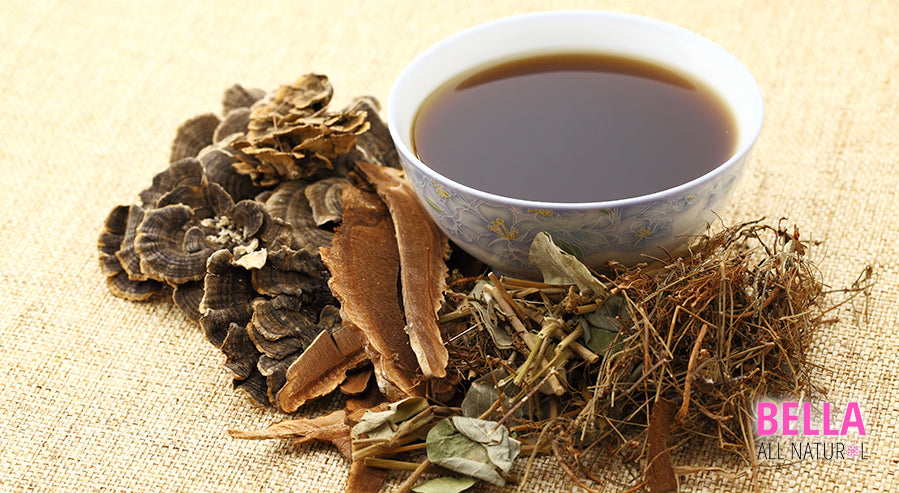
Just keep in mind adaptogens are plant substances. They're part of nature's toolkit for helping us handle stress and maintain balance.
The Role of Adaptogens in Managing Chronic Conditions
Adaptogenic herbs play a big role in our wellness routine, helping us manage stress levels and combat fatigue. Did you know that adaptogens may also be beneficial for those with chronic conditions such as congestive heart failure and COPD?

Let's dive into how these plant substances may provide relief.
Managing COPD
COPD often causes severe discomfort due to persistent respiratory distress. Medical expert Dana Ellis Hunnes suggests that adaptogens such as Asian Ginseng could offer some relief by supporting the body's ability to regulate its reaction to stressors, potentially easing symptoms associated with this condition.

It's important to note that while adaptogens might aid symptom management, they are not standard treatments for COPD. Always consult your healthcare provider before starting any new regimen.
Balancing Hormones Naturally
Hormone discrepancies can lead to a variety of health problems, from changes in the temper to gaining weight. Interestingly enough, studies suggest that certain adaptogenic herbs work within our bodies' HPA axis - the control center for many hormones - possibly bringing about balance naturally.
Ashwagandha or Withania somnifera is one such herb commonly used in Eastern medicine practices for hormone regulation thanks, largely due to its potential impact on cortisol production during times of stress. The use of Ashwagandha supports normal doses needed by the body, thereby reducing anxiety and promoting better sleep patterns, according to a systematic review published by the National Center For Complementary And Integrative Health.

Whether you're managing chronic obstructive pulmonary disease, congestive heart failure, or hormonal imbalances, remember that while adaptogens can provide help, they should not replace traditional treatments. Always seek advice from medical experts when considering the use of herbs for health management.
Expert Insights and Recommendations on Using Adaptogenic Herbs
The world of adaptogens is vast, but with insights from medical experts like Dana Ellis Hunnes, senior dietitian at UCLA Health, we can start to unravel the mystery. Dana Ellis believes that adaptogenic herbs play a big role in stress relief by helping our bodies manage their reaction to stressors.
Holy basil, also known as Tulsi, for example, is an adaptogen herb widely used in Eastern medicine. It's thought to help reduce anxiety and combat fatigue while supporting your body's ability to cope with stress. Meanwhile, Asian Ginseng refers specifically to Panax ginseng - a common adaptogen recognized for its potential benefits, including improving mood and fighting fatigue.

Ashwagandha or Withania somnifera is another star player among common adaptogens, which has shown promising results in relieving stress, according to the National Center for Complementary and Integrative Health (NCCIH). This review proposes that Ashwagandha may be advantageous even in comparison to conventional treatments when it comes to recuperation after surgery or managing conditions such as congestive heart failure and COPD.
Adding these powerful plant substances into your wellness routine could have numerous benefits - but always remember: normal doses support health; excesses might lead you astray. Therefore, ensure dosage guidelines are strictly followed.
Ashwagandha vs Asian Ginseng
If you're after stress relief or fighting fatigue, both Ashwagandha and Asian Ginseng are strong contenders. However, the two herbs have different ways of dealing with stress and fatigue.
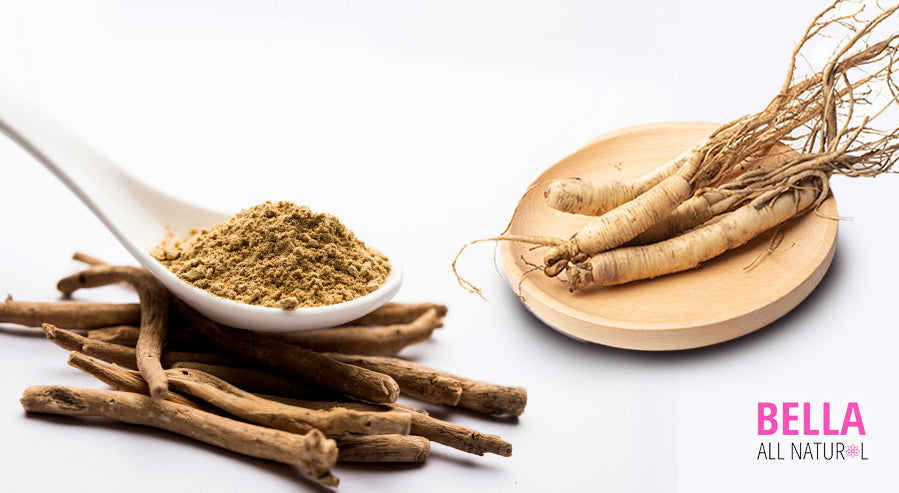
Ashwagandha has a reputation for reducing anxiety while also helping your entire body's ability to cope with stressors. It doesn't just mask symptoms; it aids your body's management of these stressful situations better over time.
Ginseng combats fatigue by boosting energy levels. Its adaptogen properties help the body regulate its natural rhythms and maintain balance when dealing with external pressures like work-related demands or emotional turmoil.
Holy Basil vs. Reishi Mushroom
In terms of mood-boosting abilities, Holy Basil stands tall as an effective player against depression. Ginseng could only dream about matching. This herb works by balancing hormones, which can have a big role in mood regulation – everything from joyous highs to depressive lows gets influenced here.
Reishi mushroom, on the other hand, acts more holistically, influencing not just mental health but improving overall wellness routine, too. Studies suggest that reishi helps strengthen immune function – because we all know how poor immunity can bring down one's spirits.
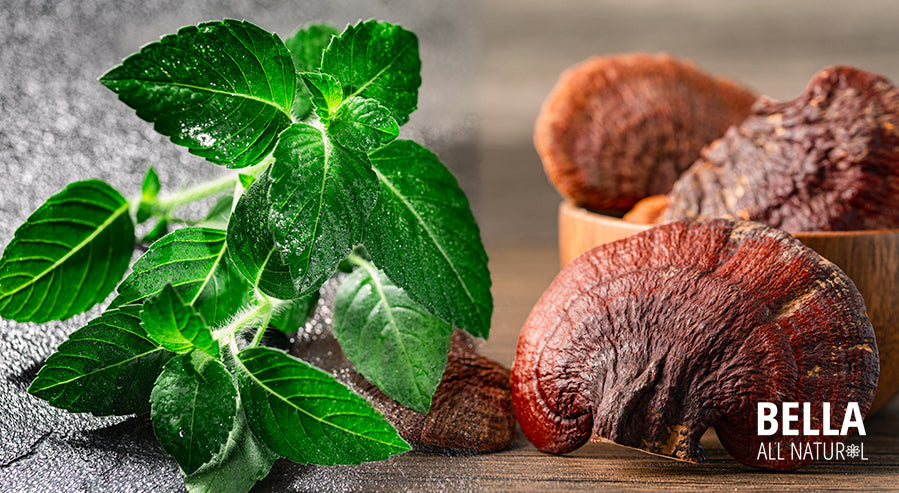
One study suggests that both these adaptogens reduce anxiety and help bodies return to a state of calm after experiencing stress. However, it's important to note that everyone reacts differently to herbs, so you might need some trial and error before finding the one that suits your body best.
Wrapping it up, if stress or fatigue is getting the better of you, Ashwagandha or Asian Ginseng might just be your go-to remedy.
Keep It All Natural!
Adaptogenic herbs are nature's own maestros, orchestrating our body's symphony in response to stress, bringing about a harmonious balance. From Ashwagandha to Asian Ginseng and Holy Basil, these adaptogens are pivotal in guiding our physiological responses and ensuring equilibrium through their interaction with the HPA axis.
However, as with all remedies, moderation and adherence to safety guidelines are essential. Embrace these herbs judiciously for the most beneficial outcomes.
Beyond mere stress alleviation, adaptogens may offer hope for those grappling with chronic ailments like COPD or hormonal imbalances. As you delve further into the world of adaptogens, consider comparing their unique attributes to tailor your wellness regimen.

For those keen on embarking on this adaptogenic journey, consider starting with Golden Ashwagandha - a blend designed to optimize your health and well-being. Give it a try today!



